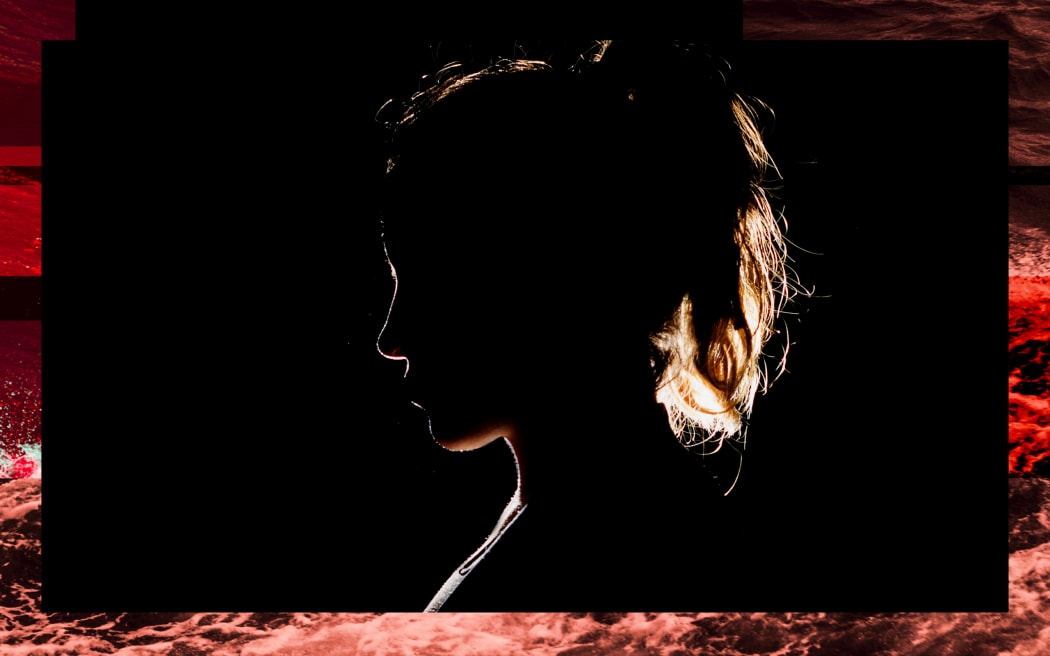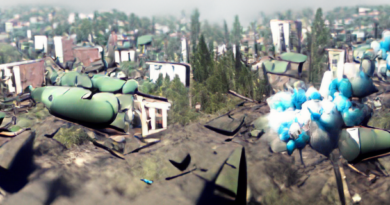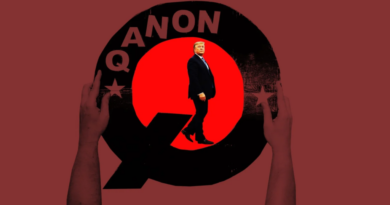Undercurrent: I feared my conspiracy theorist friend would try to ‘save’ my children
She was a kind-hearted friend who her kids loved to be around. But a descent into disinformation and the dark web made one woman fear her conspiracy theorist friend would steal her kids away.
Never get in the car with her, Sarah told her kids. Never.
A woman she’d known for years as a friend had become a woman she feared might try to take her children away. Sarah worried she’d try to “save them”.
“It makes me sound crazy,” Sarah says.
“But if you knew this person, you’d probably come to the same conclusion. Because she would be so worked up about this. So incredibly worked up.”
Sarah’s not her real name. In order to protect her safety, her identity cannot be disclosed. She’s quietly spoken with a soft Kiwi accent and lives in a city in Aotearoa.
She tells her story in Undercurrent, an RNZ documentary series on misinformation.
I’ve been in touch with Sarah for months. Over email, and then several phone calls, before I visit her at home – the home that, at times, she’s felt trapped in.
Sarah is a close-up eyewitness to some of the most extreme parts of the disinformation networks, both homegrown and overseas conspiracy theories.
I spoke with several people like Sarah for Undercurrent. She, like many of them, needs to remain anonymous because she fears retribution for telling her story.
She decided to do an on-the-record interview with me because she said it felt important. That word – important – is one several people in a similar position used when deciding to talk to me about their situation.
People like Sarah, who have lost relatives or friends down disinformation rabbit holes are not often heard from. They suffer some of the real world consequences – the relationships that are strained, that disintegrate or are damaged.

Sarah shares her story in episode three of Undercurrent, an RNZ series available on all podcast apps and at rnz.co.nz/undercurrent.
Photo: Unsplash / Molly Blackbird
A friendship that turned to fear
Before Sarah tells me about one of her former friends, she says they “could make my life worse if they knew about this”. This, meaning talking to a journalist.
They’ve been friends for many years, there was a closeness, they became “fast friends”, describing this woman as “quirky” and “very welcoming, very friendly, very outgoing”.
“A lot of fun to be around. Really actually, a fantastic person, gentle, very kind hearted. My children adored her, just absolutely adored her.”
The friendship fractured a few years ago, around the time Donald Trump was elected US President. Sarah recalls her “shock” at realising her friend no longer seemed to share some of her values and beliefs, about climate change, for example.
Their differences got deeper during the Covid-19 pandemic. Sarah says by then her friend was using the dark website 8chan, the same one the Christchurch mosque shooter posted on, and she also had links with the white supremacy community.
She says things between them went downhill fast. As well as other conspiracy theories, Sarah’s friend fell into QAnon – a right wing American conspiracy theory, which believes a cabal of blood-drinking, child-abusing Satanists are ruling the world. It first surfaced on the dark web in 2017.
Sarah describes her friend’s beliefs as a “cult”, and that every time they met became an opportunity to recruit her. She also says her friend targeted her children when Sarah wasn’t around, including telling them they would die if they had the Covid-19 vaccine.
She noticed her friend would turn up more often to “preach” or “rant” at her or her children, sometimes going on for hours. There was no way of stopping her or trying to reason with her. Any conversation could be turned towards conspiracy theories like QAnon.
Sarah gets more worked up as she recounts these details, her eyes shining with anger and her smile vanishing. Her voice takes on a harder quality talking about her feelings of disgust with the attempts to recruit her children.
Now, she says she goes into a cold sweat if her phone rings and her friend’s name comes up on the screen. If Sarah sees her car driving behind her, she’ll hang a left or right down a side street and wait until it’s gone past.
Sarah says she came to feel like a prisoner in her own home, hiding from her friend. If she knocks at the door Sarah, and sometimes her children, duck down behind the kitchen bench, or hide behind the sofa.
As the tension escalated, Sarah told her children never to get in a car with their friend, because “I actually feared that she thought I was such a terrible parent for vaccinating my kids, I actually feared she’d try and save them and take them.”
More friends down the rabbit hole
If it isn’t already obvious, the whole thing has changed how Sarah lives her life – always keeping her car in the garage with the door closed and making the house look like no one’s at home. Locking the doors.
She does chores like gardening at times of the day she knows her friend won’t be around, to minimise the risk of bumping into her. Sarah chooses to go to shops that her friend likes only at times she knows she won’t be there. If she goes somewhere and sees her friend there, she’ll turn back: “I would do anything, it’s always in my mind actually, I’m always on high alert.”
This isn’t an isolated case for Sarah. Many of her childhood friends have been similarly influenced by conspiracy theorists. She blames Facebook.
“I’ve lost them to Chantelle Baker, basically. They all have their conversations online, sharing Chantelle’s beliefs and I just, I can’t join in. I don’t like it.”
Baker became a prominent figure with her livestream from Parliament’s lawn during last year’s protests. Hers was one of a small number of accounts on social media responsible for the bulk of the most widespread false or misleading content at the time of the Wellington occupation.
Sarah has known some of these friends since she was five years old. She says she was caught unaware by several of them.
“Just through conversations [I was] discovering how I’m the only one that feels that vaccinations were a good idea,” she says.
“And it’s funny because initially a couple of them weren’t against the vaccine but something they must have read or someone’s got into their ear and told them, they did a complete flip and changed their minds and are now sharing content that I would never imagine they would ever share.”
It includes from the far-right American Infowars founder Alex Jones, who was successfully sued by the families of children killed in the Sandy Hook school shooting, and former English goalkeeper and sports broadcaster turned conspiracy theorist David Icke, who believes that reptilian humans walk among us.
They also share posts from Liz Gunn, a former mainstream journalist in Aotearoa who now platforms conspiracies.
She describes these friendships now as “empty”. She’s hurt about losing lifelong friends.
“I’ve spent so many of my years building memories with these people. And a lot of things I’ve done in my life have been with these people. Yeah, all the photos, everything, just years,” she says.
“Maybe in a decade time, it will turn around, and we’ll have a laugh and go, ‘Oh, wasn’t that silly?’ But I don’t know. I would have never imagined a pandemic would have come along and people would have such differing views. I just thought when Covid came along, and a vaccine was produced, everyone will go, ‘Oh fantastic, let’s just get on board and get on with it.’ I didn’t realise it would turn into being this politicised thing.”
* Subscribe to Undercurrent via Spotify, Apple, iHeart or wherever you get podcasts
Hope, and the meaning of friendship
It’s hard to describe someone while keeping them anonymous. Sarah is petite, with glossy hair and bright skin and eyes. Delicate bone structure. When we meet she’s dressed simply in loose pants and a top, warm colours, and pretty, colourful jewellery.
Outside, sharp showers burst through but the sun spills in the windows while we sip tea in her lounge. There’s a cracking view, the kind that you want to stop and gaze at.
Sarah’s dog falls asleep on the sofa between us, having its tummy tickled.
Three years on from so many of her friendships being hijacked by conspiracy theory and disinformation, Sarah is philosophical about what might happen next.
“I’ve just made it my mission to make new friends and I’ve met new women that share my beliefs, and it’s lovely actually,” she says.
“Yeah, it’s sad because I have memories, decades-long memories with these other people. But if we’re going to sit in a room and only talk about the weather, what’s the point? If you can’t be yourself and talk about things without it feeling tense, then that’s not a friendship anymore, is it?
“But I have hope that maybe one day… It’s not about ‘I’m right, you’re wrong’. It’s not that, just don’t fall for the misinformation. Please see who you’re being manipulated by and where they come from, and who they’ve been paid by. What is their reason for it?”


